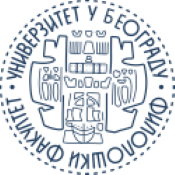Spanish in Serbia: Demolinguistic Analysis of the Presence of Spanish in the Formal Educational System of Serbia
DOI:
https://doi.org/10.18485/beoiber.2023.7.1.8Apstrakt
As a part of Spanish in Europe project, an investigation was carried out in the period 2020-2022 with the objective to complete the demolinguistic analysis of the Spanish language in Serbia. In an attempt to identify all users of the Spanish language, one of the areas of research refers to the educational system, which is the focus of our analysis. We explore the presence of Spanish language in the Serbian educational system at the three levels of formal education – primary, secondary and university education. Based on the longitudinal quantitative data that refer to the number of students of Spanish in the three levels of formal education, we consider the presence of Spanish in comparison with other foreign languages of our educational system. From there, we offer an explanation for the fluctuations observed in the presence of Spanish, taking into account the educational and sociocultural context.Reference
Council of Europe. Reference Framework of Competences for Democratic Culture. Strasbourg: Council of Europe, 2018. Web. 17 Apr. 2023.
—. Common European Framework of Reference for Languages: Learning, teaching, assessment. Companion volume. Strasbourg: Council of Europe, Language Policy Programme, Education Policy Division, 2020. Web. 17 Apr. 2023.
Đurić, Ljiljana. Strani jezici u obrazovnoj politici Srbije. Beograd: Filološki fakultet, 2016. Štampano.
Đurić, Ljiljana. «Papel de la profesión en la formación de las políticas de lenguas en educación: el ejemplo de la integración del español y de la enseñanza temprana de lenguas en el sistema educativo serbio.» Ponencia plenaria en la conferencia internacional Desarrollo de las Competencias de los Profesores para la Enseñanza Temprana de ELE en la Era Digital. Facultad de Filología, Universidad de Belgrado, 23 de septiembre de 2022.
Dörnyei, Zoltán, & Kata Csizér. «Some dynamics of language attitudes and motivations: Results from a longitudinal nationwide survey». Applied Linguistics 23 (2002): 421–462. Print.
Filipović, Jelena, & Ljiljana Đurić. «Early childhood foreign language learning and teaching in Serbia: A critical overview of language education policy and olanning in varying historical contexts». Early language learning policy in the 21st century: An international perspective. Subhan Zein & Maria R. Coady (eds.). Cham: Springer, 2021. 61-84. Print.
Filipović, Jelena, Julijana Vučo & Ljiljana Đurić. «Rano učenje stranih jezika u Srbiji». Inovacije u nastavi 19.2 (2006): 113–124. Štampano.
—. «Critical review of language education policies in compulsory primary and secondary education in Serbia». Current Issues in Language Planning 8.2 (2007): 222–242. Web. 20 Aug. 2022.
Georgijev, Ivana, y Ivana Vranić Petković. «La enseñanza universitaria de la lengua española en Serbia: tendencias actuales y perspectivas». Godišnjak Filozofskog fakulteta Univerziteta u Novom Sadu XLV-3 (2020): 61–75. Impreso.
House, Juliane. «English as a lingua franca: A threat to miltilingualism». Journal of Sociolinguistics 7.4 (2003): 556–578. Web. 20 Aug. 2022.
Instituto Cervantes. El español: Una lengua viva. Informe 2021, 2021. Web. 20 Aug. 2022.
Jovanović, Ana. «A service-learning program for multilingual education at an early age: Tandem teaching experiences». Handbook of Research on Training Teachers for Bilingual Education in Primary Schools. José Luis Estrada Chichón & Francisco Zayas Martínez (eds.). Hershey, PA: IGI Global, 2023. 186–207. Web. 15 Apr. 2023.
Jovanović, Ana, y Natalia Sánchez Radulović. «El español en Serbia: estado de la cuestión». Colindancias 4 (2013): 373–392. Web. 20 Aug. 2022.
Loureda, Óscar, et al. El español en Europa. Demolingüística del español en Alemania. Madrid: Instituto Cervantes; Heidelberg: Universidad de Heidelberg; Zurich: Universidad de Zúrich, 2020. Web. 20 Aug. 2022.
Ministarstvo prosvete, nauke i tehnološkog razvoja. «Specijalizovana odeljenja za učenike sa posebnim sposobnostima za filološke nauke.» Veb. 20 Aug. 2022.
Pejović, Anđelka. «Alcances y perspectivas del español en Serbia». Acta hispánica XVIII. Tibor Berta & Zsuzsanna Csikós (eds.). Szeged: Universidad de Szeged, Departamento de Estudios Hispánicos, 2013. 49–60. Impreso.
Pihler Ciglič, Barbara, y Jelena Filipović. «El español en los Balcanes: Bosnia y Herzegovina, Croacia, Eslovenia, Macedonia del Norte, Montenegro y Serbia.» El español en el mundo. Anuario del Instituto Cervantes. Madrid: Instituto Cervantes, 2022. 267–293. Web. 17 Abr. 2023.
Službeni glasnik. Zakon o srednjem obrazovanju i vaspitanju. Pravno informacioni sistem Republike Srbije, 2013-2021. Službeni glasnik 55/13, 101/17, 27/18 – dr. zakon, 6/20, 52/21. Veb. 20 Aug. 2022.
—. Zakon o osnovama sistema obrazovanja i vaspitanja. Pravno informacioni sistem Republike Srbije, 2017-2021. Službeni glasnik 88/17, 27/18 – dr. zakoni, 10/19, 6/20, 129/21. Veb. 20 Aug. 2022.
Soldatić, Dalibor. «Las literaturas hispánicas en Serbia.» Colindancias 1 (2010): 21–28. Web. 20 Aug. 2022.
##submission.downloads##
Objavljeno
Kako citirati
Broj časopisa
Sekcija
Licenca
Sva prava zadržana (c) 2023 Ana Jovanović, Ivana Georgijev

Ovaj rad je pod Creative Commons Autorstvo-Deli pod istim uslovima 4.0 Internacionalna licenca.
Autori koji objavljuju u ovom časopisu pristaju na sledeće uslove:
- Autori zadržavaju autorska prava i pružaju časopisu pravo prvog objavljivanja rada i licenciraju ga pod okriljem Creative Commons Attribution-ShareAlike 4.0 International License koja omogućuje drugima da dele rad uz uslov navođenja autorstva i izvornog objavljivanja u ovom časopisu.
- Autori mogu da izrade zasebne, ugovorne aranžmane za ne-ekskluzivnu distribuciju rada objavljenog u časopisu (npr. postavljanje u institucionalni repozitorij ili objavljivanje u knjizi), uz navođenje da je rad izvorno objavljen u ovom časopisu.
- Autorima je dozvoljeno i podstiču se da postave objavljeni rad on-line (npr. u institucionalnom repozitoriju ili na svojim mrežnim stranicama) pre i tokom postupka prijave, s obzirom na to da takav postupak može voditi produktivnoj razmeni ideja, te ranijoj i većoj citiranosti objavljenog rada (up. The Effect of Open Access).













